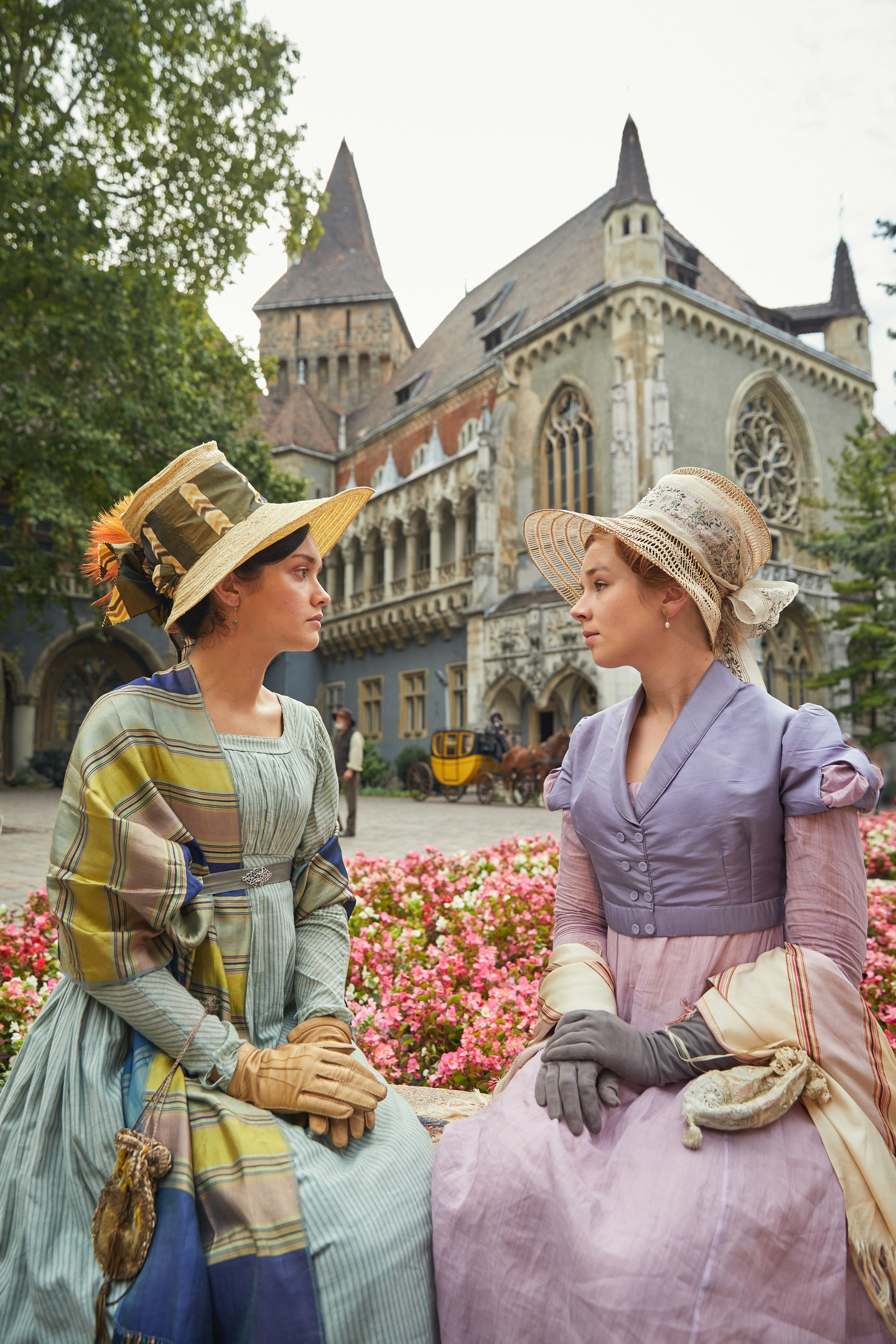Vanity Fair, by William Makepeace Thackeray

July 18 marks the 210th birthday of William Makepeace Thackeray, whose novel of social-climbing, backbiting, profligate behavior, and true love, Vanity Fair, was published in 1848 and made him a wealthy man. With numerous audio, film, and television adaptations, Vanity Fair endures, and like any engrossing socio-historical epic—The Forsyte Saga, The Thornbirds, even Downton Abbey—the narrative centers on events both sprawling and intimate, with a cast of players whose yearnings are big enough, complex enough, and sufficiently fraught to paint a sprawling portrait of time and place—one in which the smallest details sparkle. Mira Nair, director of the 2004 film version, called the novel a “cinema verité” of its day; and indeed, the canvas includes not only the day’s social hierarchy, financial disasters, and the changing attitudes of regency-era England, but the Napoleonic Wars as backdrop and portrait of the era’s military culture, with its social hierarchy, model of career service, and codes of honor, and in The Battle of Waterloo, dashing conviction and tragic turns of plot.

The center of the story is, of course, Rebecca Sharp, aka Becky—the orphaned daughter of a French painter and an Opera girl, with a noble lineage she traces back to the Montmorencys of Paris. The character of Becky, as expected, is sharp, both in wits and tongue, though she’s also practical, and when it suits her, a loyal friend. We meet Becky in London of 1814 at Miss Pinkerton’s Academy for Young Ladies, an “articled pupil” in a school where her father once taught drawing. Now, as her station dictates, on completion of her studies she is placed into the workforce, as a governess at Crawley Manor, an estate in Hampshire. But in the days before her position starts, her wealthy schoolmate, Amelia Sedley, offers to put her up—and Becky immediately sets her sites on Joss Sedley, Amelia’s naive brother, who quickly becomes smitten.

The two young women see themselves as sisters, but they couldn’t be more different. We learn of Amelia that “she had such a kindly, smiling, tender, gentle generous heart, as won the love of everybody who came near her,” Thackeray writes; a young woman of privilege whose life has been planned in advance—unlike Becky’s—defined by temporary victories and occasional flukes of luck. The character of Becky Sharp has become a trope, the down-and-out young woman for whom living well is, as Thackeray writes, “Revenge may be wicked, but it’s natural.” And indeed, Becky is an often unlikeable protagonist, but one you may root for all the same, even as her ambitions give rise to stunning schemes and betrayals.

in the BBC’s 2018 production.
Oppositions fuel all of the central relationships, which are completed by three young military officers: George Osborne, the callow, fickle love of Amelia’s life; Rawdon Crawley, profligate second son (and tragically outside the line of inheritance) of Sir Pitt Crawley; and William Dobbin, George’s socially awkward, lifelong friend, who upon meeting Amelia, promptly falls in love with her and carries a flame in secret for years. Dobbin might well be the novel’s ambiguous moral center, “a true gentleman” who “loves with a generous heart,” at least for a while.

There are secondary and even tertiary characters who bring richness and depth, as all who appear in Thackeray’s striving universe have desires that are deep and abiding. Becky is an opportunist who wants social standing, Amelia wants George, and William wants Amelia, but there are characters who seek far more intangible things— like Sir Pitt’s elderly sister, Lady Matilda Crawley. She holds the family fortune, but she has never married, and in old age fears she will die unremembered. And when she takes a shine to Becky, the Crawleys are scandalized, fearing their fortune will be lost to an interloper.

The Vanity Fair of the title is taken from John Bunyan’s Pilgrim’s Progress (1678), a reference to a pilgrimage waystation representative of sinful attachment to worldly things. That certainly describes Becky, her avarice and downfall, a bill that comes due in every sense of the word, after years of deceit and scraping by to keep up appearances. To paraphrase George Osborne, Becky is
…Sharp by name and sharp by nature.
To complement Thackerey’s novel, there are two contemporary film versions: Mira Nair’s 2004 film with Reese Witherspoon as Becky, and the BBC’s 2018 miniseries. Fans of Fleabag will appreciate the BBC’s production, with Sian Clifford in the role of Martha Crawley, wife of the firstborn son, Bute—she brings a pinched, antic air to the portrayal. And speaking of Fleabag, Thackeray too was fond of breaking the fourth wall, and his novel’s narrator directly implicates the reader, extending the story’s reach into the meta-fictional—and he did it over 170 years ago.
—Lauren Alwan

